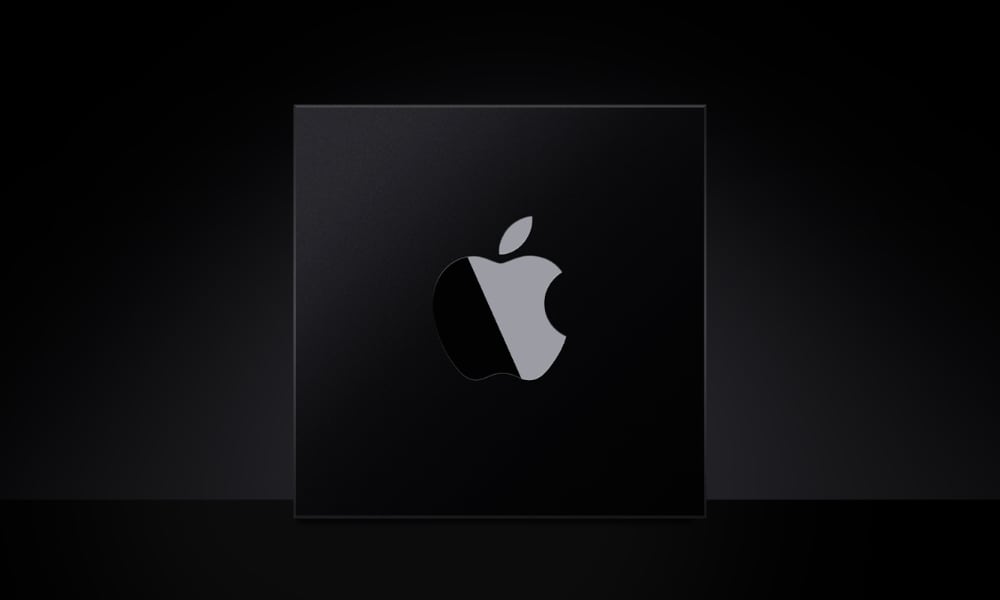Apple Orders TSMC M5 Chips As It Lays Groundwork For Late 2025 Devices
 Credit: Apple
Credit: Apple
Toggle Dark Mode
Apple has ordered M5 chips from Taiwan Semiconductor Manufacturing Company (TSMC) as the chipmaker prepares to produce its next-generation processor for use in Apple devices, claims a new Korean-language report by The Elec.
The M5 chip lineup is expected to be manufactured using TSMC’s advanced 3-nanometer process technology, featuring an enhanced ARM architecture. While many had expected Apple to use TSMC’s more advanced 2nm process for the M5 chip, the Cupertino device maker is avoiding the costlier new technology to hold down costs. However, the chip will still offer significant advances over the M4, thanks to the adoption of TSMC’s System on Integrated Chip (SoIC) technology.
The technology uses a 3D chip-stacking approach to reduce electrical leakage and provide enhanced thermal management compared to traditional 2D designs. The next-generation hybrid SoIC package also combines thermoplastic carbon fiber composite molding technology. The package reportedly entered a small trial production phase in July.
Production of the M5 chips could kick off as soon as the second half of 2025, with the first M5-powered devices possibly launching at the end of 2025 or in early 2026. If Apple sticks to its typical device upgrade cycle, we can expect to see the first M5 iPad Pro devices hit shelves in late 2025 or early-to-mid 2026, MacBook Pros featuring M5 series chips in late 2025, M5 MacBook Air variants in early 2026, and an M5-powered Vision Pro headsets sometime between fall 2025 and spring 2026.
Also, thanks to its dual-use SoIC design, Apple reportedly plans to deploy the M5 chip within its Apple Intelligence server infrastructure to bolster Artificial Intelligence capabilities across its devices and cloud services.
Today’s report indicates Apple will continue to rely on Taiwan Semiconductor Manufacturing Company for its chips for the foreseeable future. TSMC made it possible for Apple to transition away from using Intel-based chips in its Mac lineup, thanks to the Taiwanese firm’s advanced manufacturing capabilities.
However, not all is rosy for TSMC as the firm attempts to navigate a minefield between the United States and Chinese governments. As reported by Mactrast, the US Department of Commerce is investigating a possible sanctions breach.
U.S. sanctions, implemented in 2020, block Chinese firm Huawei from using components from US companies without explicit approval. Restrictions added in 2022 severely restrict the export of AI chips to China.
While TSMC is trying to please everyone by acting as what a TSMC executive called “a semiconductor version of Switzerland,” it’s becoming a tougher trick to pull off.
TSMC had been contacted by a firm that kept secret that Huawei was the client it was negotiating a chip deal for. The order was for a chip designed to train large language models for artificial intelligence. The chip’s design was similar to the Huawei Ascend 910B.
TSMC is now conducting an internal investigation of its Chinese customer base as it searches for any suspicious chip orders. The company is no longer fulfilling questionable chip orders, and the Taiwanese chipmaker has even destroyed chips included in suspicious chip orders.
While TSMC attempts to please the US government, it also seeks to preserve its relationship with China. It has two fabrication facilities located inside Chinese borders, where it manufactures chips for several Chinese customers. Restrictions by the Chinese government could severely impact not only TSMC’s profits but those of the entire semiconductor industry.
Chinese officials reportedly contacted TSMC about the US investigation. They were told that while the US was calling the shots, the company would do only what US regulators required and nothing more.







